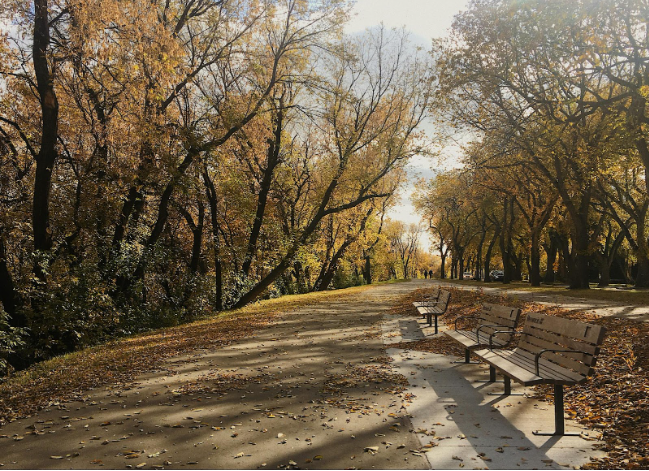Introduction
In today’s fast-paced world, it’s easy to get caught up in the chase for more—more success, more possessions, and more achievements.
But what happens when we lose sight of what’s already in front of us? That’s the essence of Tymoff’s quote: “Love what you have, before life teaches you to love.”
This is a profound reminder that we often overlook the blessings in our lives until life forces us to appreciate them, sometimes through loss or hardship.
Understanding Tymoff’s Quote

At the heart of Tymoff’s message is a deep connection between love, contentment, and gratitude.
The quote suggests that we should cherish what we have now instead of waiting for life’s harsh lessons to teach us the value of it.
Often, people fail to recognize the good in their lives until it’s too late—whether it’s relationships, opportunities, or even material possessions.
The Importance of Gratitude in Everyday Life
Gratitude isn’t just a feel-good emotion; it has tangible benefits for both mental and physical health. Research shows that regularly practicing gratitude can reduce stress, increase happiness, and even improve your sleep. When you start focusing on what you have instead of what you lack, you begin to see the world differently.
Yet, despite the benefits, many people struggle to appreciate what they have. The reason? It’s easier to notice what’s missing than to acknowledge what’s present. That’s why cultivating gratitude takes effort, but the rewards are profound.
Living in a Consumer-Driven World

We live in a society that constantly pushes us to want more. Advertisements, social media, and even peer pressure contribute to this sense of dissatisfaction. When we’re always chasing the next best thing, we overlook what we already have.
Social media, in particular, plays a big role. Seeing other people’s highlight reels can make us feel like we’re not enough, feeding into a cycle of comparison and envy. This mindset prevents us from truly appreciating our own lives.
Why Waiting for Life to Teach You Can Be Painful
Sometimes, life has a way of forcing us to appreciate things—often through loss or hardship. Whether it’s losing a loved one, facing a health crisis, or dealing with financial setbacks, these difficult experiences can be wake-up calls. They remind us that the things we took for granted were, in fact, precious all along.
Regret often plays a big role in these moments. People frequently say, “If only I had appreciated it when I had it.” By practicing gratitude now, you can avoid the pain of looking back with regret.
Personal Growth Through Appreciating the Present
Mindfulness is a powerful tool for cultivating gratitude. By focusing on the present moment and really paying attention to the details of your life, you can develop a deeper appreciation for what you have.
Take the time to notice the small things—a warm cup of coffee, the sound of laughter, or even the roof over your head. When you pay attention, you realize that your life is already filled with moments worth cherishing.
Practical Ways to Cultivate Gratitude
It’s easy to talk about gratitude, but how do you actually practice it? Start with small daily habits like writing down three things you’re grateful for each day. Journaling can help you focus on the positive aspects of your life, even when times are tough.
Another technique is to reframe negative thoughts. Instead of dwelling on what’s wrong, try to focus on what’s right. Over time, this shift in mindset can help you develop a more positive, grateful outlook.
The Role of Relationships in Teaching Us Gratitude
Loving the people in your life is one of the most important forms of gratitude. Relationships thrive when we appreciate each other. Sadly, many people only realize this after experiencing loss.
By cherishing your loved ones now, you can build deeper, more meaningful connections. Don’t wait until it’s too late to express your appreciation.
Lessons from Life: Stories of People Who Found Gratitude

Many individuals have shared how adversity led them to a deeper sense of gratitude. Oprah Winfrey, for example, often talks about how her struggles in life shaped her ability to appreciate even the smallest blessings. These stories are powerful reminders that hardship can often lead to the greatest lessons in life.
Why You Should Start Now
There’s no need to wait for life to force you into appreciating what you have. Start practicing gratitude today. By doing so, you can avoid the pain of regret and create a more fulfilling, content life.
Common Misconceptions About Gratitude
One common misconception is that practicing gratitude means settling for less. This isn’t true. Gratitude doesn’t mean you stop striving for improvement; it simply means you appreciate what you have along the way.
Overcoming Barriers to Gratitude
Feelings of envy or comparison can prevent you from appreciating your own life. But by focusing on your own journey and acknowledging that everyone has their struggles, you can break free from this trap.
The Transformative Power of Loving What You Have
When you practice gratitude, your relationships improve, your work becomes more fulfilling, and even tough times become easier to bear. Loving what you have now creates a ripple effect, impacting every area of your life in a positive way.
Conclusion
Loving what you have, before life teaches you to love, is about recognizing the beauty in the present. By practicing gratitude daily, you can transform your outlook, build stronger relationships, and lead a more fulfilling life.






















+ There are no comments
Add yours